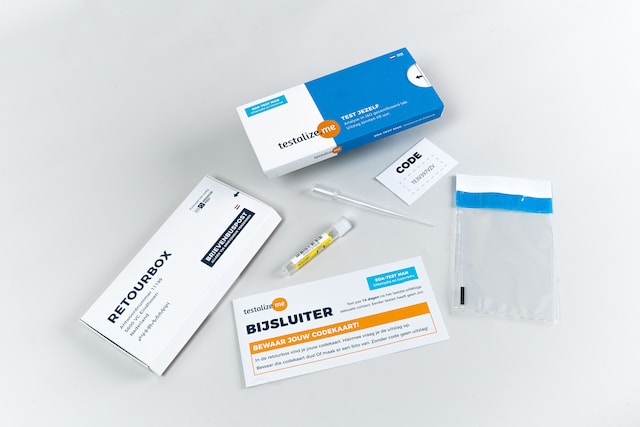- 1 June 2023
- 301
Top 10 Signs That Mean It’s Time to Get a Comprehensive STD Test

Title: Are You at Risk? The Top 10 Signs That Mean It’s Time to Get a Comprehensive STD Test
Introduction: Sexually transmitted diseases (STDs) are a significant public health concern, affecting individuals of all ages and backgrounds. Detecting and treating STDs early is crucial to prevent complications and curb their spread. In this article, we will explore the top 10 signs that indicate it’s time to get a comprehensive STD test to protect your health and the well-being of your sexual partners.
- Unprotected Sex: If you have engaged in any form of sexual activity without using barriers like condoms or dental dams, you are at risk of contracting STDs. Unprotected sex increases the likelihood of exposure to infections such as HIV, chlamydia, gonorrhea, and syphilis. Regardless of whether you exhibit symptoms or not, getting tested is crucial to ensure your sexual health.
- Multiple Sexual Partners: Having multiple sexual partners, even if they are not concurrent, increases the risk of STD transmission. The more partners you have, the higher the chance of encountering an infected individual. Regular testing is essential to identify any potential infections early on and prevent further spread.
- New Sexual Partner: Entering into a new sexual relationship warrants getting tested for STDs. It’s important to ensure both you and your partner have a comprehensive understanding of your sexual health status. Testing can help build trust, facilitate open communication, and establish a foundation of responsible sexual behavior.
- Previous STD Infection: If you have previously been diagnosed with an STD, you may be at an increased risk of contracting other infections. Certain STDs, such as herpes and HIV, can have long-term effects and make you more susceptible to other sexually transmitted infections. Regular comprehensive testing can help manage your health effectively.
- Symptoms or Visible Changes: Experiencing symptoms or observing visible changes in your genital area should never be ignored. Signs such as unusual discharge, genital sores, rashes, itching, or pain during urination or sexual activity can be indicative of an STD. Prompt testing is crucial to receive an accurate diagnosis and appropriate treatment.
- Partner Disclosure: If your sexual partner discloses their STD status or has recently been diagnosed with an infection, it’s important to prioritize your own testing. Open communication is vital in maintaining a healthy and responsible sexual relationship. Testing will provide clarity and enable both partners to make informed decisions.
- High-Risk Behavior: Engaging in high-risk sexual behavior, such as having sex under the influence of drugs or alcohol, sharing needles, or engaging in sex work, significantly increases the risk of contracting STDs. In such situations, comprehensive testing is recommended to ensure early detection and timely treatment.
- Routine Testing: Regardless of symptoms or risk factors, regular routine testing is crucial for maintaining sexual health. Many STDs may not present any noticeable symptoms, and individuals can unknowingly transmit infections to others. Routine testing helps identify asymptomatic infections and ensures timely intervention.
- Pregnancy or Planning for Pregnancy: If you are pregnant or planning to conceive, it is important to get a comprehensive STD test. Some untreated STDs can have severe consequences for both the mother and the unborn child. Early detection and appropriate treatment can minimize potential risks and ensure a healthy pregnancy.
- Peace of Mind: Lastly, getting a comprehensive STD test can provide peace of mind and empower individuals to take control of their sexual health. Regular testing promotes a proactive approach and fosters a culture of responsible sexual behavior, reducing the stigma surrounding STDs.
Conclusion: Recognizing the signs that indicate the need for comprehensive STD testing is crucial for maintaining personal health and preventing the spread of infections. Whether it’s unprotected sex, multiple partners, symptoms, partner disclosure, or routine testing, taking responsibility for one’s sexual health is essential. By prioritizing regular testing, open communication, and safe sexual practices, we can strive towards a society where STDs are effectively managed, transmission rates are reduced, and sexual health is safeguarded.

